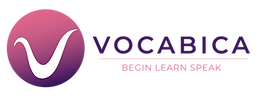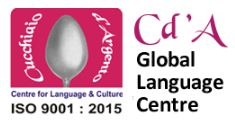Korean is one of the most popular languages to learn these days, and for good reason! It’s a challenging and unique language with a rich culture and history. Korean is the official language of South Korea and North Korea.

Korean is one of the most popular languages to learn these days, and for good reason! It’s a challenging and unique language with a rich culture and history. Korean is the official language of South Korea and North Korea. It is also spoken by communities of Korean speakers around the world, particularly in China, Japan, and the United States.
The Korean writing system, called Hangul, was created by King Sejong the Great in the 15th century. It is a unique and easy-to-learn writing system that has 24 letters
The Korean language has six levels of politeness and formality, which can make it a bit tricky to learn at first. But don't worry, with practice and patience, you'll get the hang of it!
Korean pop culture, including K-pop music and K-dramas, has become increasingly popular worldwide in recent years. This has led to a surge in interest in the Korean language and culture.
Learning Korean can also open up job opportunities in fields such as tourism, technology, and education. In fact, the Korean government offers scholarships to foreigners who want to study in Korea and learn the language.
Korean is a beautiful, elegant language. Although most Koreans can understand each other, there are very few exceptions to this. It is much more dependent on tones than it is in Chinese or Japanese as there are a lot more tones and their specific ways of speaking.
The way Korean speakers speak is often called “seoljeong” in Korean and is a unique form of speech without proper grammar (although such things are still possible). Many learners find the seoljeong difficult to grasp at first, but with enough practice and dedication, you will be able to speak like a native Korean speaker.
As they say "?? ??? ?? ??? ?? ?? ???." (Gongja apeseo munja baeuneun geoseun bareun giriida.) This means "Learning from Confucius is the right path." Confucius was a Chinese philosopher who emphasized the importance of education and morality, and his teachings have had a significant influence on Korean culture.
It's difficult to understate how important it is for a person studying Korean Language to have a solid foundation in their native language. It's not that learning Korean grammar is complicated.
It really just requires putting yourself in the situation every day until you learn. It's also important to make sure that you start with conversations and not texts, as text often lacks the nuance that makes spoken language so appealing.
So, why should you learn Korean? Well, besides the cultural and personal benefits, knowing Korean can also lead to professional opportunities in various fields. South Korea is a major player in the global economy, and knowing the language can give you an edge in fields such as technology, manufacturing, and trade.
Additionally, South Korea is a popular tourist destination, and knowing the language can make your travel experiences more meaningful and enjoyable. From delicious Korean cuisine to stunning natural landscapes, there is so much to discover in Korea.
At Vocabica, our Korean language course is designed to help you master the basics of Korean grammar, vocabulary, and pronunciation. We offer both in-person classes in Mumbai and online classes for those who prefer to learn from the comfort of their own home.
Our course objectives include developing your reading, writing, listening, and speaking skills, and helping you become confident in communicating in Korean.
So, what are you waiting for? Come join us on this exciting journey to learn the Korean language and immerse yourself in the rich culture of Korea!
Proficiency in Korean Language:
TOPIK (Test of Proficiency in Korean) is a Korean language test administered by the South Korean government in order to evaluate the non-native speakers ability in understanding and using the Korean language. Aspiring to work, study or live in South Korea, TOPIK is one of the most important examinations. TOPIK exams in India are similar to those that are conducted in South Korea. The examinations are divided into two main exam categories - TOPIK 1 and TOPIK 2.
TOPIK 1 is for beginners who are just starting to learn Korean. It focuses on the basic knowledge of Korean such as basic grammar, reading and writing. The score range for this level is from 10 to 90 points. The examination lasts for a duration of 75 minutes.
TOPIK 2 is for intermediate and advanced learners who already have a good understanding of the Korean language. The exam covers more advanced topics such as reading and writing of more complex sentences, listening and speaking. The score range for this level is 30 to 180 points. The examination lasts for a duration of 180 minutes.
The prescribed textbooks for the examinations are ‘TOPIK One Day’ and ‘TOPIK II’, both published by the Korea Institute of Curriculum and Evaluation (KICE). The textbooks are essential for those who are appearing for the test as they contain all the required study material along with sample tests.
Students appearing for the exam must also note that TOPIK India is an online exam. At the exam centre, students will be required to provide their ID, fill in the necessary paperwork, and take the exam on the computers provided by the centre.
Overall, TOPIK exams assess your proficiency in the Korean language and certify your language level. The exams are recognized worldwide and the results of the examinations can get you a job, higher education, and even permanent residency in South Korea.
Vocabica is one of a kind domestic & foreign language integrated platform based in Mumbai, India which offers courses for learning over 20 different languages.
Vocabica is one of a kind domestic & foreign language integrated platform based in Mumbai, India which offers courses for learning over 20 different languages.
Welcome to Vocabica, a premier platform for language learning based in Mumbai, India. We offer a unique and integrated approach to learning over 20 different languages, both domestic and foreign.
Our journey began in 2021 with the goal of filling a gap in the language training industry. Our founding team noticed a lack of quality language courses that effectively develop speaking ability, and they set out to change that.
Our platform offers specially designed courses with top-notch content, taught by expert trainers through live interactive classes in small groups and 1-on-1 private sessions. Our classes are available both online and offline (in select locations), making language learning accessible and convenient for everyone.
At Vocabica, our trainers are dedicated to using modern tutoring methods to help our students develop confidence in speaking their target language. We understand the changing trends in the business world, where fluency in multiple languages is becoming increasingly important. Our goal is to provide quality language training at an affordable cost, so that anyone can improve their speaking skills and communicate with ease.
In a world that is becoming increasingly connected, learning new languages is a valuable asset for personal and professional growth. Whether you are moving to a new country, studying abroad, or looking to collaborate with people from different cultures, Vocabica is here to help you achieve fluency and confidence in your target language.
So why wait? Book a private session with us today and start your journey to becoming a confident language speaker.

Language Fluent is an institute dedicated to foreign language in Wardha which offers online classes, classroom coaching program, the official and internationally recognized certifications, Immersion Course, and many cultural, literary and academic activities throughout the year.

Korean is the official language of the Republic of Korea (South Korea) and the Democratic People’s Republic of Korea (North Korea). Around 75 million people speak this awesome language and it ranks 18th as the most used language in the world. Korean is of course a luminous language.

The curriculum of the courses is latest and industry-relevant. It is planned to equip you attain a level of competence in contemporary Korean language which is adequate for communication. The basic course is a foundation program ideal for those who have no knowledge in the language.

Cd’A Global Language Centre is an ISO certified premium and most trusted foreign language teaching institute in Kolkata, India. After successfully completing a course each candidate is entitled to get a valid ISO certified certificate as per CERF Norms.

Let’s Speak Offers the Best Korean Language Courses in Chennai, a Full-Fledged Language Institute, which has come up with twelve years of research in global languages with alumni of over 20000+ students.
© 2025 coursetakers.com All Rights Reserved. Terms and Conditions of use | Privacy Policy